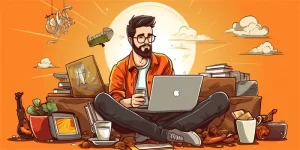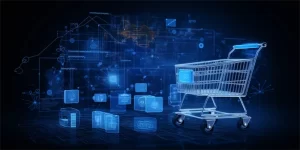In recent years, artificial intelligence (AI) has made significant strides in various industries, including the creative sector. From generating artworks and music to aiding in the design process, AI algorithms have become an integral part of artistic expression. However, the implementation and acceptance of AI in creative industries are far from stable, presenting both opportunities and challenges. In this article, we will explore the diffusion of AI in creative industries from various perspectives.

1. AI in Artistic Creation
AI algorithms have been employed to generate art in various forms, such as paintings, sculptures, and even poetry. Artists and designers can use AI-powered tools to aid in their creative process, providing new perspectives and inspiring ideas. However, some argue that AI-generated art lacks the human touch and emotional depth that traditional art possesses, raising questions about the authenticity of AI-created works.
Furthermore, AI-generated art raises copyright and ownership concerns. Who owns the rights to an AI-generated artwork, the artist or the AI algorithm? This legal ambiguity poses challenges for both artists and the legal system.
2. AI in Music Composition
AI algorithms have proven to be capable of composing music that rivals human compositions. Tools such as Jukedeck and Amper Music have gained popularity, allowing non-musicians to easily create original compositions using AI-generated melodies and harmonies. However, while AI can produce impressive music, it lacks the emotional connection and nuance that comes from a human composer’s experience and expression.
Another concern is the potential homogenization of music. If AI algorithms become prevalent in the music industry, there is a risk of all music sounding similar, as they learn from popular compositions to generate new ones. This could hinder the diversity and creativity in musical expression.
3. AI in Design and Advertising
AI algorithms have found applications in design and advertising, facilitating tasks such as image recognition, layout optimization, and personalized ad targeting. Designers can leverage AI-powered tools like Adobe Sensei and Canva to enhance their creativity and streamline their workflows. However, concerns arise regarding the role of AI in design decision-making. Should AI algorithms solely augment human creativity, or should they have the ability to make design choices independently?
Furthermore, the use of AI in targeted advertising raises ethical questions. AI algorithms gather and analyze vast amounts of user data, allowing advertisers to create personalized ads. While this can improve marketing effectiveness, it also raises concerns about privacy and the manipulation of consumer behavior.
4. AI and Intellectual Property
The deployment of AI in creative industries complicates the concept of intellectual property. As AI algorithms become capable of producing original works, determining authorship and ownership becomes challenging. Traditional copyright laws may not be equipped to address these novel scenarios.
Some argue for a reevaluation of intellectual property laws to accommodate AI-generated works, allowing fair compensation for both humans and algorithms. Others propose the creation of AI-specific copyrights, where the AI algorithm is recognized as the creator and owner of its creations.
5. Ethical Implications of AI in Creativity
While the integration of AI in creative industries presents exciting possibilities, it also raises ethical concerns. For instance, the use of AI algorithms in facial recognition technology for art authentication can lead to the manipulation and forgery of artworks. Questions about AI bias, accountability, and transparency also arise, as AI algorithms learn from existing data that may encode societal biases.
It is crucial to address these ethical implications and ensure that AI is used responsibly and with consideration for the broader societal impact.
FAQs:
Q: Can AI completely replace human creativity in the arts?
A: While AI algorithms can generate impressive art and music, they lack the depth and emotional connection that comes from human creativity. AI can complement and assist human creativity but is unlikely to fully replace it.
Q: Are AI-generated artworks considered original and authentic?
A: The authenticity of AI-generated artworks is a subject of debate. While the algorithms can create visually appealing pieces, they lack the personal expression and intentionality that is often associated with traditional art.
Q: Will AI algorithms make human artists obsolete in the future?
A: AI algorithms may automate certain aspects of the artistic process, but they cannot replicate the unique perspectives, emotions, and experiences of human artists. Human creativity remains invaluable and will continue to play a significant role in the arts.
References:
(1) Smith, A. (2018). AI-generated art now looks more like a department store catalogue. The Guardian. Retrieved from [link]
(2) Vasalou, A. (2019). Artificial Intelligence in the Music Industry: Challenges and Opportunities. Frontiers in Digital Humanities, 6. doi: 10.3389/fdigh.2019.00005
(3) Ham, A. (2018). Can artificial intelligence replace human creativity? ArtsHub. Retrieved from [link]








